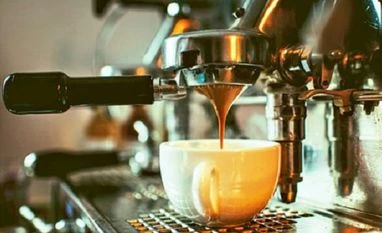India’s coffee chain market is set for exciting times. With the board of Coffee Day Enterprises, the holding company of Cafe Coffee Day, indicating last week that it would “deleverage” its assets to pare debt following the death of its founder V G Siddhartha, the race for the country’s largest cafe chain will heat up, retail industry sources say.
The world’s largest beverage company Coca-Cola is already in the race for Cafe Coffee Day as it seeks a broader retail footprint in India to push its products. People in the know had told Business Standard last week that Jubilant FoodWorks and Tata Global Beverages were also interested, though the two companies did not respond to emails sent to them on the matter.
While Tata Global has a tie-up with US coffee chain Starbucks since 2012, acquisition of Cafe Coffee Day would give the joint venture company access to more stores, which it needs to expand its presence in the Rs 2,500-crore domestic coffee retail market.
Euromonitor data shows that the coffee chain market in India is likely to touch Rs 4,537-crore in five years, growing at the rate of 12 per cent annually. Café Coffee Day and Starbucks are leading players, the market research agency said in its report on the cafe market in India. Some other key coffee chains in the country include Barista, McCafe from McDonalds and Costa Coffee.
Though Costa Coffee was acquired globally by Coca-Cola last year in a $5.1 billion deal, the latter has been unable to make much headway here with the brand, since it continues to be run by billionaire-bottler Ravi Jaipuria, the chain’s India franchisee partner.
Jaipuria’s Devyani International runs around 50 stores of Costa Coffee in the country, unable to work out a deal with Coca-Cola for his exit from the franchise agreement. The move by Coca-Cola, said sources, to begin acquisition talks with Café Coffee Day, was led in part by this stalemate in discussions between it and Jaipuria.
Apart from Costa and Coca-Cola, Nestle too had struck a $7.15 billion global deal with Starbucks last year to sell Starbucks’ coffee products outside its cafes, in shops and supermarkets to be precise. Neither Nestle or Starbucks have indicated their plan of action for the India market yet.
Retail industry sources say the interest by Jubilant FoodWorks, meanwhile, stems from the wider play of rivals such as Westlife Development in food and beverages. Westlife runs both McDonalds and McCafe outlets in the west and south of India.
In a recent conversation with Business Standard, Westlife’s vice-chairman Amit Jatia had said the company continued to add McCafe outlets within McDonald’s restaurants and that at the end of the June quarter there were 197 McCafes in the west and south of the country. “We continue to see a market both for burgers and coffee. The growth prospects for both are strong here,” he said.
Jatia’s point is endorsed by Arvind Singhal, chairman, Technopak. “The coffee retail market has grown in India largely because most chains are positioned as a place to hang out. Kids come to a café to spend time after college. Working professionals organise meetings over a cup of coffee. This has helped maintain the pace of growth of the coffee chain market despite cost of real estate shooting up, some players facing challenging times and a general consumption slowdown in recent quarters.”
Euromonitor says what aids the growth of the coffee chain culture in India is the millennial population. “Many products, such as cold brew coffee, are displaying exceptional growth,” it said in its report on coffee chains. “There is constant innovation happening to woo the millennial population,” it adds.
Experts say the 18-35 age group is among the key target groups of coffee chains in India owing to higher disposable incomes available to this TG, a better standard of living that many are exposed to and the openness to grab a quick meal or drink at a café.
Starbucks, for instance, has been at the forefront of product innovation, aimed at drawing the attention of millennials at its 150 stores in India. The chain, for instance, introduced nitrogen gas-infused coffee last year apart from having brewing techniques that count on heat-resistant glass, special filters and manual espresso machines to deliver smooth and consistent coffee.
The American coffee chain is expected to add around 25-30 stores this year organically as it eyes the 180-mark in terms of outlets by the end of FY20, experts tracking the market said. In FY19, the company opened 30 stores, touching a top line of Rs 450 crore, a year-on-year growth of 30 per cent.
Coffee Day Enterprises, which runs 1,752 stores of Café Coffee Day in the country, reported a retail revenue of Rs 1,468 crore in FY19, a year-on-year growth of 8 per cent. Same-store sales growth, which measures top line growth in stores one year and above, was nearly 10 per cent for FY19, higher than the 7.23 per cent reported in FY18.
While Coffee Day Enterprises has delayed release of its June quarter numbers, which was expected on August 8, following the death of Siddhartha last week, rivals and analysts will be tracking the company closely to figure out its growth prospects for the future.
Unlock 30+ premium stories daily hand-picked by our editors, across devices on browser and app.
Pick your 5 favourite companies, get a daily email with all news updates on them.
Full access to our intuitive epaper - clip, save, share articles from any device; newspaper archives from 2006.
Preferential invites to Business Standard events.
Curated newsletters on markets, personal finance, policy & politics, start-ups, technology, and more.
)